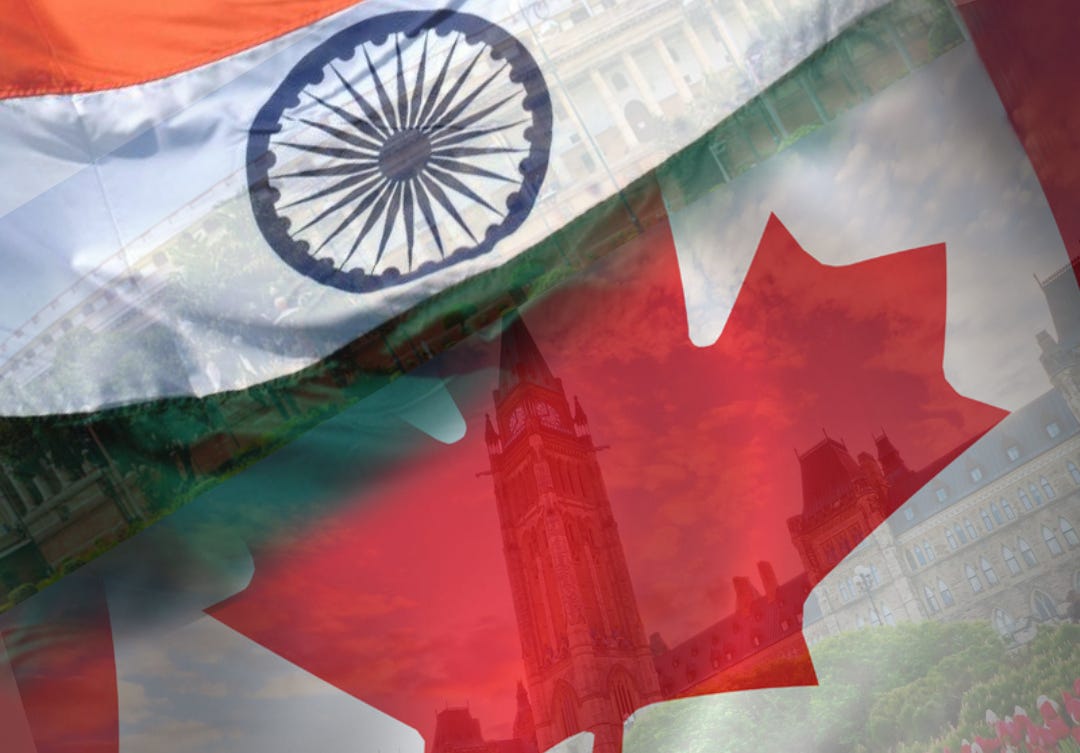Extradition In Canada: Sikh Institutions Confront Indian Repression
Sikh gurdwaras in Canada recently took an important step to challenge India’s efforts to repress Sikh activism worldwide, submitting a brief to Parliament urging reforms to Canada’s extradition laws. This was an important step towards proactively advancing Sikh political interests in the diaspora. The brief exemplifies how Sikh groups can pursue meaningful policy objectives without erasing the Sikh sangarsh and the ongoing context of political conflict and struggle altogether.
While calling for the incorporation of human rights considerations into the extradition process for all affected individuals, the submissions detail India’s problematic use of its judicial system to target Sikh dissent. The brief specifically outlines how India uses anti-terror legislation and extrajudicial violence domestically, while engaging in foreign interference to criminalize Sikh activists in exile/diaspora. In this sense, the brief firmly roots the issue of Indian extradition requests in the appropriate context of an ongoing political conflict:
Since the annexation of the Sirkar-i-Khalsa and colonization of Punjab by the British in 1849, the Sikh panth (community) has continuously mobilized to reestablish its sovereignty. In this vein, the Sikh panth revitalized its indigenous self-governing mechanisms in 1986 and declared the intention to secede from India in order to establish an independent state, Khalistan. In response, Indian security forces sought to repress this mobilization by rejecting any political settlement on self-determination and instead, used force to crush Sikh dissent militarily in order to maintain political hegemony over the region. India and Canada originally signed their extradition treaty during the height of this insurgency, specifically keeping the proposed extradition of Sikh activists in mind.
One of the many problems with the proliferation of “counter-terrorism” discourse post-9/11, is that it gave a favourable political and legal environment to repressive legal frameworks that enable and encourage criminalization of political expression—with grave implications for persecuted communities and social movements. Numerous human rights organizations and activists around the world have recorded how states around the world capitalize on this environment to intensify their repression of political opponents and dissidents.
India is undeniably one of those states in terms of how its national security and counter-terror legislation functions as a political tool to inhibit the activities of political dissidents and minorities—although it has been doing so far before 9/11. This can clearly be seen in the recent treatment of Sikh proponents of a non-binding referendum on Punjab’s secession, who have not only been criminalized as alleged members of a terrorist organization under UAPA, but who have been arrested and tortured simply for painting slogans, or organizing registration drives for voters. On one occasion alone, five Sikh youth associated with the proposed referendum were arrested and faced repeated electrocution on their earlobes, testicles, nostrils and nipples; beaten on their tailbone making it difficult to sit or lie down; beaten on their feet with a thick wooden stick making it difficult to stand in addition to further physical and mental abuse.
This is even more concerning given the evidence on the record that Indian agencies have engaged in foreign interference in Canada to manipulate public discourse and policymakers by disseminating targeted messages through media and explicitly targeting Canadian parliamentarians for propaganda. The brief addresses this point in some detail while highlighting the vulnerabilities in Canada’s extradition framework:
Given the expansive authority of Canada’s political executive to make extradition decisions with minimal judicial oversight, it is important that there is no risk—or even a perception—that such decisions may be influenced by electoral calculations, partisan concerns, foreign interference, short-term foreign policy interests or other extrinsic reasons without judicial oversight. This is even more pressing given that Canada’s recent Indo-Pacific Strategy identifies India as a critical partner in achieving its objectives and in response, Indian officials have made comments about “cracking down” on Sikh activism in Canada in a manner suggestive of quid pro quo. Leaving the Minister’s decision-making process virtually unassailable through judicial review leaves Canada’s apparatus open to perceptions that the safety and security of minority communities may be bartered to achieve Canadian foreign policy objectives.
As Canada’s Indo-Pacific Strategy illustrates, countries all across the Global North are racing to strengthen their relationships with India in order to gain access to the massive market that is India’s 1.4 billion population. Given this interest, there is reasonable concern throughout the community that many politicians will willingly trade the basic political rights of a racialized minority in exchange for increased trade with India and other foreign policy objectives. This leaves panthic activists particularly vulnerable to the weaponization of anti-terror legislation subordinate to foreign policy interests as India ramps up its repressive apparatus and spreads its tentacles worldwide. It is imperative that Sikh organizations–working in all fields–understand India’s increasingly pervasive influence on the global stage and how this will inevitably impact how foreign states view and interact with the Sikh sangat in the near future. This was highlighted by the British Columbia Gurdwaras Council (BCGC) and Ontario Gurdwaras Committee (OGC):
Canada’s unfair extradition procedure and the highly deferential standard of review leaves racialized communities and other marginalized groups highly vulnerable to foreign states who may abuse Canada’s procedure to stifle political dissent and silence government critics around the world. This is evident in the case of India which has consistently sought to repress Sikh political advocacy for Khalistan, alongside attempts to delegitimize and suppress dissidents living outside of its borders.
A copy of the joint submissions made by the BCGC and OGC can be downloaded here.


